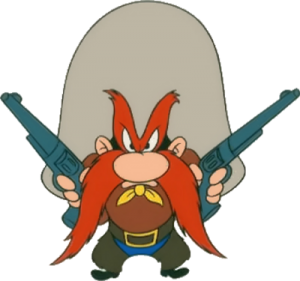Inkstainedwretch
One Too Many
- Messages
- 1,037
- Location
- United States
I didn't know whether to post this in the "Things that tick you off" thread, but it involves movies so here goes:
In movies set in the Golden Era, I often hear people use words or, especially, phrases that came into use much later. For instance, in the excellent film, L.A. CONFIDENTIAL, based on the James Ellroy novel of the same name, the look was pitch-perfect, but at one point the James Cromwell character advises the Guy Pearce character: "Lose the glasses." This is set around 1951, and I don't recall "lose"used in this fashion at least until the '70s.
Staying with the James Ellroy theme, Brian de Palma's pretty-good "THE BLACK DAHLIA," set in 1947, had a couple of them. In one, Bucky Bleichert says, "She wasn't the worst Dahlia wannabe I'd seen." I never heard the term "wannabe" before the '80s, in the early Madonna days. This one is forgivable, because it's in voiceover and we know that Bleichert is relating a story from his past. For all we know, it's the 80s when he's writing his memoirs. Still it's annoying. A worse one is when Scarlett Johanson's character speaks of something happening "back in the day." This is another turn of phrase I never heard before the 80s. In fact, I first remember hearing it used on an episode of "Miami Vice."
These happen because the scripts are written by people too young to remember the period. They've heard these phrases all their lives and assume they were always in use. Period scripts should be proofread by people old enough to remember the vocabulary and speech patterns of the time depicted.
Does anyone else have favorite examples of this annoying practice?
In movies set in the Golden Era, I often hear people use words or, especially, phrases that came into use much later. For instance, in the excellent film, L.A. CONFIDENTIAL, based on the James Ellroy novel of the same name, the look was pitch-perfect, but at one point the James Cromwell character advises the Guy Pearce character: "Lose the glasses." This is set around 1951, and I don't recall "lose"used in this fashion at least until the '70s.
Staying with the James Ellroy theme, Brian de Palma's pretty-good "THE BLACK DAHLIA," set in 1947, had a couple of them. In one, Bucky Bleichert says, "She wasn't the worst Dahlia wannabe I'd seen." I never heard the term "wannabe" before the '80s, in the early Madonna days. This one is forgivable, because it's in voiceover and we know that Bleichert is relating a story from his past. For all we know, it's the 80s when he's writing his memoirs. Still it's annoying. A worse one is when Scarlett Johanson's character speaks of something happening "back in the day." This is another turn of phrase I never heard before the 80s. In fact, I first remember hearing it used on an episode of "Miami Vice."
These happen because the scripts are written by people too young to remember the period. They've heard these phrases all their lives and assume they were always in use. Period scripts should be proofread by people old enough to remember the vocabulary and speech patterns of the time depicted.
Does anyone else have favorite examples of this annoying practice?
